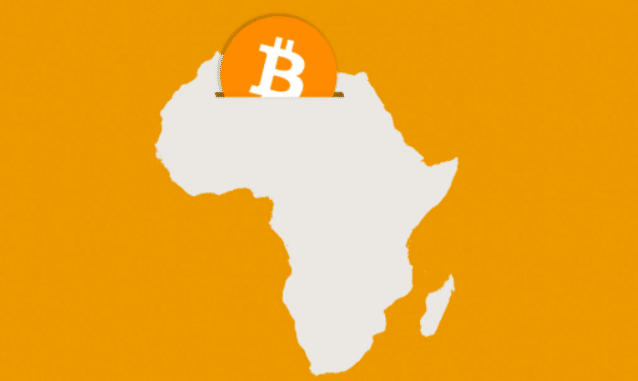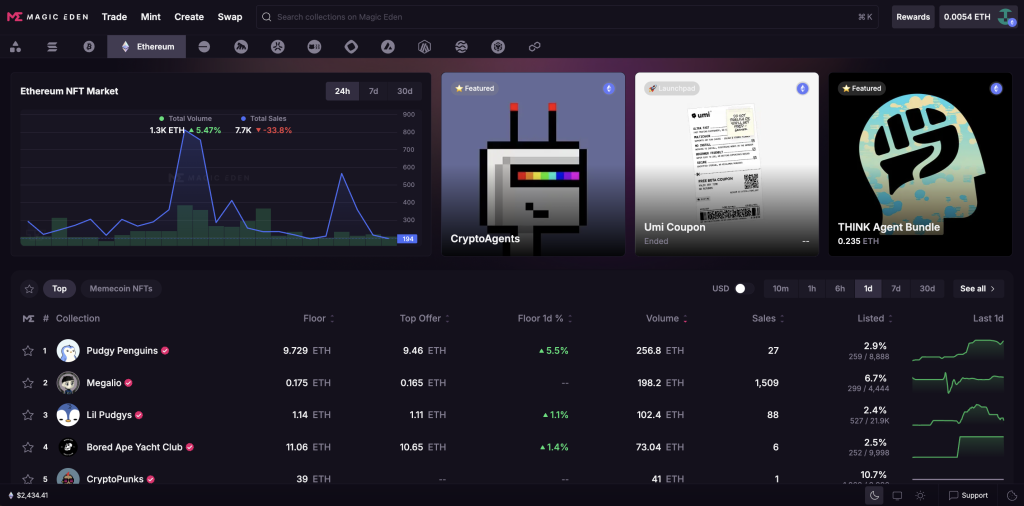Features
Global NotPetya Malware Attack Reaches Africa
Published
9 years agoon

The “Petya” cyber attack has hit Africa, South Africa’s 702 Radio has reported. According to the media outlet, several companies in the country could have suffered from the attack that started in Ukraine earlier this week. The malware has hit several organisations in Europe and America, and is now being felt in Africa as well as in some parts of Asia.
How Petya Works
The ransomware targets networks belonging to large organisations and companies. In most cases, it attacks machines that run on Microsoft Windows. Just like WannaCry, Petya leverages the EternalBlue vulnerability in order to infect system files.
After rapidly infecting them, the malicious program starts to install. Then, it forces the machine to reboot and attacks Window’s vulnerabilities in order to encrypt all files. When it cannot compromise the computer through the weakness, Petya attacks Windows administrative tools. It then demands that victims pay $300 worth of bitcoin. The note on the dashboard has a Bitcoin address where victims are supposed to send the money. After settling the ransom, victims are required to send an email requesting a 12 character digital key for decryption.
Petya Reincarnate?
‘Petya’ is not the real name, because the ‘original Petya’ hit back in March 2016. After the first few reports, many users thought it was a reincarnation of the old version and thus named it ‘Petya’. Later, Kaspersky Lab redubbed it ‘NotPetya’. Other names that the malware has gained include Pneytna and Petna. Romanian’s security firm BitDefender named it Goldeneye. By then, the name ‘Petya’ had already gone viral. ‘NotPetya’ is the name widely used to refer to this attack.
Another WannaCry?
The NotPetya attack is barely two months after WannaCry hit several companies in Africa. After the NSA had warned that WannaCry was exploiting EternalBlue to attack Microsoft’s products, the company reiterated by announcing a fixing update for all Windows versions. But few users have updated their operating systems.
EternalBlue is a hacking weapon widely believed to have been created by the NSA. A secret group called the Shadow Brokers leaked it online in early 2017. According to Symantec, both WannaCry and NotPetya ransomware exploited the vulnerability. The agency traced the WannaCry attackers to North Korea.
But Maya Horowitz from the Threat Intelligence says
“Unlike other ransomware types, Petya does not encrypt files on infected machines one by one. Instead, it locks up the entire hard disk drive.”
Antivirus Response
Symantec and Kaspersky are some of the leading antivirus companies that claim to detect and protect devices against ‘Petya’ infections. The companies urge their users to update the security software for the new provision. Also, Microsoft in March fortified their Window’s security tools to patch the ExternalBlue vulnerability.
According to The Register Newspaper, some advanced Windows users have already discovered that the NotPetya outbreak looks for the C:\Windows\perfc.dat read-only file. It does not install on PCs where the file is present, but instead, it spreads out to other computers within the network.
Spreading Like Mushroom in Fall
As The Guardian quotes Proofpoint’s Ryan Kalember, the malware “has a better mechanism for spreading itself than WannaCry.”
Barely a few days after being reported in Ukraine, ‘NotPetya’ is moving fast to other parts of the world. It has disrupted large corporations in Europe and the United States. Companies such as WPP advertising company, Saint-Goban and Russia’s oil and steel leaders Rosneft and Evraz are some of the victims. Others include the DLA Piper law firm, Heritage Valley Health System and AP Moller-Maersk. It is also believed to have brought operations at Indias largest container port, JNPT, to a standstill.
On Wednesday, the ransomware was reported to have hit South African companies. The country’s Radio 702 announced that some local firms could have been infected.
What to Do If Affected
The NotPetya ransomware infects computers and then reboots to install it. During the installation, the malicious software starts to encrypt your files. Victims and researchers say that after the attack, the malware takes an hour before rebooting. So, @HackerFantastic on Twitter came up with a clever way of protecting files. The user tweeted;
‘If machine reboots and you see this message, power off immediately! This is the encryption process. If you do not power on, files are fine.’
If you switch off your computer while it is rebooting, you can stop the encryption process. Although the machine may still end up getting infected, your files will be safe.
If it is too late and the PC is already encrypted, then you will get a note demanding that you pay the ransom. There’s no need wasting your time and money paying the ransom. The attacker’s web provider has blocked the ‘support’ email address provided by the attackers. This means that you cannot contact them to send the key to unlock your files.
Instead, take the device offline, format the hard disk and then reinstall all your files from a previous backup. It is wise to back up files regularly to circumvent such attacks.
Who Is Behind NotPetya?
After the first few hits, pundits noted that the attack was too substandard to have come from expert criminals. In fact, some even claimed that the hacker could be an amateur trying to take advantage of a leaked cyber weapon.
The first indication was that the bitcoin address provided was the same for every victim. In other serious hacking encounters, hackers indicate customised addresses for each target. In addition, the malware has only one email address which serves as ‘customer care service’. The suspension of the email address by the provider shows how shoddily the attack had been planned.
But recent findings project to something bigger than just an attack from a cyber-criminal. In an interview with the Krebs on Security, online safety expert Nicholas Weaver said that Petya is a “deliberate, malicious, destructive attack or perhaps a test disguised as ransomware.” This is because the malware’s code has been modified to ensure that any changes made to a computer’s files are irreversible. This makes it different from regular ransomware.
Although it is not clear enough, security researchers say that the attack is a destructive malware that may be targeting Ukrainian government institutions, but masquerading as a mere ransomware. One of those who hold this view is pseudonymous researcher Grugq, who acknowledges that this malware is different from the old version of Petya. Grudg notes that Petya “was a criminal enterprise for making money.”
The pundit draws the difference between the old Petya and the new NotPetya. “The new is definitely not designed to make money. This is designed to spread fast and cause damage, with a plausibly deniable cover of ransomware,” he adds.
On his blog, Grudg also notes that the payment method was too unrealistic, and no serious hacker could code such a thoughtful malware only to blow up the payment plan. He points out that it would be careless for a malicious coder to indicate a single traceable payment address and lockable email address. The blogger also finds it stupid that the hacker requires victims to email them for the computer’s 60-character unlocking key. According to Grudg, this is the same as ‘send a personal cheque to Petya Payments, PO Box … ’
Why Ask Ransom in Bitcoins?
Most ransomware attacks demand payment in the form of bitcoins. The hackers result to the cryptocurrency due to its pseudo-anonymity. Cyber attackers are smart, and they understand that using their bank accounts or credit cards will get them arrested in no time. Hence, to remain unknown, Petya attackers demand that $300 be paid to their bitcoin address.
Like WannaCry before it, Petya is a wakeup call for African organisations to take cyber security seriously. A number of government authorities are already helping companies to stay safe. In a press statement, the Communication Authority of Kenya (CA) outlines the online security measures that organisations and individuals ought to take. A similar statement has been issued by Nigerian authorities.
You may like
Features
Magic Eden Has Quietly Become the Best Ethereum NFT Marketplace
Published
8 months agoon
June 29, 2025
Ethereum is still the king of NFTs.
Despite surging interest in Bitcoin Ordinals and Solana’s memecoin-fueled NFT renaissance, Ethereum remains the chain of choice for high-value NFT collections and deep liquidity. But if you’re still using OpenSea as your go-to Ethereum NFT marketplace, you’re missing the bigger picture.
Magic Eden has quietly grown into the most active and user-friendly Ethereum NFT marketplace.
With a smooth UI, aggressive cross-chain integration, and a growing number of partnerships with top Ethereum collections, Magic Eden has emerged as the number one choice for collectors and creators alike.
This is especially relevant to Africa’s rising Web3 talent and crypto-savvy user base. As NFT adoption spreads across the continent, from digital art in Nairobi to music NFTs in Lagos, users are looking for marketplaces that offer real discoverability, cheaper transaction costs, and wider exposure. Magic Eden fits the bill.
TL;DR
- Magic Eden has become the leading Ethereum NFT marketplace, surpassing OpenSea in user experience and aggregated listings.
- It offers the largest selection of Ethereum NFTs by aggregating listings from other platforms, including OpenSea.
- With cross-chain functionality, low fees, and a clean UI, it’s especially valuable for African creators and collectors entering the NFT space.
- Its community-driven approach and growing partnerships make it a top destination for Ethereum NFTs, globally and across Africa.
Why Magic Eden Stands Out in the Ethereum NFT Landscape
Magic Eden didn’t just show up on Ethereum: it made a statement.
While legacy marketplaces rested on their early-mover status, Magic Eden built a better experience from the ground up. Its rapid rise in the Ethereum NFT space comes down to a combination of smart technical integrations, creator-first tools, and a user interface that just works.
Here’s what sets it apart:
Largest Aggregated Selection of Ethereum NFTs
Magic Eden aggregates listings from multiple Ethereum NFT marketplaces, including OpenSea, but not the other way around. That means you’ll find more collections on Magic Eden than anywhere else, and often better prices.
This is crucial in a maturing market. Rather than chasing hype, Ethereum collectors today are looking for value, rarity, and provenance. Aggregation allows for better price discovery, more liquidity, and a one-stop-shop browsing experience that cuts through the noise.
Whether you’re looking for Trump’s NFT collection (on Polygon), the infamous Bored Ape Yacht Club NFTs, the cute Pudgy Penguins NFTs, or
It’s Actually Cross-Chain (and It Works)
Unlike other Ethereum NFT marketplaces that only claim to be cross-chain, Magic Eden has fully integrated support for Bitcoin, Polygon, and 10+ other chains, too. And this isn’t just window dressing.
You can use one wallet to trade across chains, and the UI stays consistent no matter which chain you’re exploring.
For African creators and collectors navigating different ecosystems, from Polygon’s low-gas minting to Bitcoin Ordinals, this is a game-changer. You don’t have to switch platforms or lose visibility because of your chain of choice.
Clean Interface, Low Fees, Easy Onboarding
Magic Eden’s Ethereum marketplace is built with usability in mind. The onboarding process is simple, the search function is robust, and you don’t need to be a degen to find your way around.
For creators across Africa who are new to the Ethereum NFT space, this lowers the barrier to entry. Artists can focus on launching their work without worrying about poor UI, clunky listing flows, or high gas fees (Magic Eden lets you batch list and supports low-fee chains like Polygon and Solana as alternatives).
Backed by Real Partnerships and Community Culture
Magic Eden is also making smart moves in the culture and community department, something that matters more than most people think. It has secured official partnerships with Ethereum-native collections like Yuga Labs’ Otherside, and continues to collaborate with emerging creators globally.
It doesn’t feel corporate or extractive.
For African creators exploring global audiences, this positioning matters. Magic Eden feels closer to the community than peers like Blur or LooksRare, which cater mostly to high-volume traders and whales.
“Magic Eden is changing the game not just for collectors in the West, but for African creators looking for global exposure without compromising on ease of use. It’s the most creator-friendly Ethereum marketplace I’ve seen yet,” says Lucy Manzi, NFT Collector & Trader at Kotani Pay.
Ethereum Still Matters, Especially in Africa
While Bitcoin is growing fast as a transactional asset in Africa and Solana is seeing traction in mobile-first NFT experiences, Ethereum remains the most established ecosystem for digital collectibles.
From generative art to tokenized fashion, most of the Web3 projects making global headlines are still Ethereum-based.
As African creators and startups look to tap into international collector communities, being present on Ethereum (and on the right Ethereum marketplace) is key. Magic Eden provides visibility without compromise.
For African developers building NFT tools or for regional exchanges looking to integrate NFT support, Magic Eden’s open APIs and aggregated listings create opportunities for partnership and expansion without needing to start from scratch.
Final Thoughts
The Ethereum NFT market is no longer dominated by OpenSea. Magic Eden has taken the crown by doing what others wouldn’t: building across chains, simplifying the experience, and respecting creators.
For NFT creators and collectors, Magic Eden offers a practical, intuitive, and future-forward marketplace experience, whether you’re minting your first piece of digital art, flipping trending collections, or building a Web3 brand that spans borders.
In a continent where mobile-first adoption is high, cross-chain compatibility and low-gas minting options matter. Magic Eden delivers on both fronts while giving Ethereum NFTs the spotlight they deserve.
Whether you’re in Nairobi, Cape Town, Accra, or Abuja, if you’re playing in the NFT space, Magic Eden is worth your attention.
Features
Why Crypto’s Leading the Way in Africa’s Evolving Finance Landscape
Published
3 years agoon
July 24, 2023
Cryptocurrency adoption is on the rise throughout Africa. According to Chainalysis, the African crypto market is one of the fastest growing in the world, with an estimated $20 billion worth of transactions taking place per month. Meanwhile Kenya, Nigeria and South Africa are positioned in bitcoin.com top 10 global countries by Cryptocurrency Adoption.
In this article, we’ll take a closer look at the appeal of decentralised currencies in Africa and discuss how they’re leading the way in the continent’s ever-evolving finance landscape.
The Global Crypto Era
For several years now, cryptocurrencies and blockchain technology have been having a transformative effect on various industries and markets across the globe. From the disruption of the gaming industry via the emergence of play-to-earn gaming and online casino with crypto deposit platforms to smart contracts that are being used everywhere, from healthcare to real estate, the impact is evident.
With the rise of the DeFi and GameFi sectors, it’s clear that the global crypto era is now in full swing, and it’s an industry that’s gaining noticeable traction across Africa. Approximately 1.2 million Africans now actively trade cryptocurrencies, with Kenya, Nigeria and South Africa leading the way. Decentralised crypto trading platforms like Paxful and LocalBitcoins bypass financial institutions and present new opportunities for residents to buy and sell crypto tokens.
In terms of which crypto tokens are leading the way in Africa, Bitcoin (BTC) holds the position of the most dominant digital currency, with a substantial user base and trading volume. BTC is accepted and used for various purposes, including remittances and as a store of value.
Altcoins, too, are becoming more widespread in the continent, particularly Ether (ETH) and Binance Coin (BNB). Ethereum’s smart contract capabilities have fuelled its growth in the region, providing a solution to developers for building DApps (decentralised applications) that address Africa-specific challenges.
Additionally, several homegrown cryptocurrencies have emerged in recent years that are tailored to the local needs of the region. The Akoin token (AKN), for example, was founded by musical artist and humanitarian Akon as a means of powering a digital financial ecosystem in those regions with limited access to traditional banking services.
The Appeal of Cryptocurrencies
Cryptocurrencies offer several unique advantages, which, coupled with the economic stagnation still present in the continent, makes them particularly appealing to Africans.
One of the key drivers behind the burgeoning popularity of crypto in Africa is the lack of access to traditional financial services that many Africans still face. Many residents stay either unbanked or underbanked, excluding them from taking part in the global economy.
Decentralised currencies are gaining increased acceptance among the financially marginalised, particularly the low-income population, who have often been excluded from the banking system or had to face disproportionally high transaction costs. By their very nature, cryptocurrencies remove the need for traditional intermediaries, instead offering a borderless alternative that enables individuals to send and receive secure financial transactions instantly.
Currencies in countries such as Kenya and Nigeria have been damaged by decades of inflation, contributing to a surge in both economic and political instability. Cryptos hold the power to remedy financial exclusion and present an alternative to weak domestic currencies.
Unlike the more established traditional banking options in Africa, decentralised finance enables anyone with an internet connection and compatible device — smartphones included — to engage in a variety of financial transactions, from sending remittances to making investments. Crypto investing allows Africans to purchase and hold assets that will not be impacted by financial turbulence, such as rapid depreciation and ever-increasing inflation.
As mentioned above, cryptocurrencies are typically cheaper, easier to use and faster than conventional methods. The blockchain technology that eases peer-to-peer (P2P) transactions exists outside established fiat currency institutions, supplying a far more accessible and user-friendly solution.
Traditional remittance services are often slow, expensive and largely inaccessible to a significant portion of the African population. Digital currencies allow for frictionless cross-border transactions, meaning that individuals can send and receive money globally in a matter of minutes. Not only does this benefit individual consumers, but it also empowers African businesses and entrepreneurs, easing economic growth in the process.
A Lasting Impact
Given that Africa’s crypto ecosystem is still in an evolutionary stage, the popularity of decentralised currencies and blockchain applications will vary between countries and regions. Regulatory environments, infrastructure development and specific social-economic conditions can all influence the popularity and success of a crypto project. However, there’s no denying that the emergence of this industry has sparked a wave of innovation throughout many African countries.
Several blockchain-based startups have found innovative ways to leverage the potential of the technology to address the most prevalent socio-economic challenges. BitPesa is transforming the cross-border payments sector, while other startups have used blockchain tech to make supply chain management more transparent and even improve voting processes. By leapfrogging traditional infrastructures, decentralised currencies and technologies are proving to be the key to sustainable, long-term economic growth in Africa.

Cryptocurrencies have disrupted traditional financial systems in recent years, and Bitcoin profiled itself as the most famous crypto. It has already found its way to e-commerce and investment, but this crypto is also present in the world of online gaming. In this article, we will explore the growing influence of Bitcoin in the online gaming world.
Bitcoin and Online Casinos
Thanks to Bitcoin’s integration into online casinos, players and operators now have a vast range of possibilities. With the use of Bitcoin, online casinos create another level of advantage over traditional payment options. Most of all, if you perform transactions in Bitcoin, they will be quicker and more efficient.
You can deposit or withdraw the funds within seconds without the need for complex verification processes or intermediaries. This makes the gaming experience smoother and more seamless for any player. Additionally, Bitcoin offers a higher level of privacy and security. We have already experienced how much financial and personal information traditional payment methods require.
Nevertheless, unlike them, Bitcoin transactions are pseudonymous, which means they provide players with greater anonymity. This privacy feature particularly appeals to those who value their online security and wish to enjoy online gaming without revealing their identities. Integrating Bitcoin into online casinos has also resulted in innovative bonus structures and rewards.
Some Bitcoin casinos offer exclusive promotions and bonuses for players who use Bitcoin as their preferred payment method. The best Bitcoin casinos in the Philippines are safe to deposit at, according to this guide, and you can choose the one that appeals to you the most. That’s why more and more players turn to Bitcoin as their payment method, fostering its further adoption in the gaming industry.
Since Bitcoin is decentralized, transactions bypass the regular censorship and control that we can see involved with traditional payment methods. Thanks to this, players from regions with strict gambling regulations can participate in online gaming with fewer restrictions. Bitcoin-powered online casinos do not impose geographical limitations, opening their services to players worldwide.
Bitcoin and Esports Betting
Beyond online casinos, Bitcoin has made significant breakthroughs in esports betting. We could witness a skyrocketing rise of esports in recent years, which resulted in millions of enthusiasts and viewers worldwide. Thanks to Bitcoin’s integration into esports, players have a wider range of options to engage with their favorite games and gamers.
Esports, or competitive video gaming, has witnessed a meteoric rise in popularity, attracting millions of viewers and enthusiasts worldwide. Bitcoin’s integration into esports betting platforms has revolutionized how fans engage with their favorite games and players.
Bitcoin’s advantages, such as fast and secure transactions, align perfectly with the dynamic nature of esports betting. Users can easily deposit and withdraw funds, allowing for quick reactions to changing odds or game outcomes. Bitcoin’s decentralized nature also ensures that bettors from any location can participate, overcoming the obstacles of regional restrictions and currency exchange complications.
Moreover, Bitcoin’s integration into esports betting platforms has provided players with increased transparency and fairness. The technology behind Bitcoin, blockchain, allows for unalterable and auditable records of transactions, ensuring that betting outcomes are tamper-proof.
This transparency has fostered greater trust among players, operators, and regulators, further fueling the growth of Bitcoin-powered esports betting.
Bitcoin and In-Game Purchases
As the gaming industry evolves, it has also opened innovative ways for gamers to enhance their gaming experience. With the involvement of Bitcoin, players can use it for in-game purchases. Nowadays, many popular online games support cryptocurrencies for item purchases, upgrades, or other enhancements.
Since crypto transactions are more seamless, Bitcoin has become a better alternative compared to traditional in-game payment methods. Game developers have also benefited from introducing Bitcoin as a payment option. Now they can offer a more convenient way of purchasing in-game items, transaction fees are lower, and processing times have become faster.
Moreover, you, as a player, don’t need to disclose any sensitive information anymore. That way, Bitcoin usage in gaming reduces the risk of potential data breaches. The adoption of Bitcoin in in-game purchases has also opened up new possibilities for cross-platform transactions.
As Bitcoin operates globally, players can easily trade or transfer in-game assets across different games or platforms, fostering a vibrant secondary market for virtual goods. This flexibility enhances player engagement and allows for a more interconnected gaming experience.
The integration of Bitcoin into in-game purchases has also paved the way for blockchain-based gaming ecosystems. Some game developers have embraced blockchain technology to create decentralized gaming platforms where players truly own their in-game assets through blockchain-based tokens. This ownership empowers players and introduces concepts of shortage and value to virtual items.

Benefits of Using Bitcoin in Online Gaming
Players can enjoy multiple benefits from using Bitcoin in online gaming. The most obvious one is that traditional payment methods cannot match the level of Bitcoin’s security and anonymity. Due to cryptos’ decentralized nature, you don’t need to disclose your sensitive data. If you want to get started in the gaming world easily and quickly, there’s no more attractive option than Bitcoin.
Transactions are completed within seconds, and they are cheaper in terms of fees compared to other popular methods. Since Bitcoin has become more popular in the online gaming industry, gaming platforms recognized its benefits.
Therefore, they introduced it as a payment method, and nowadays, the world’s most popular online gaming platforms accept Bitcoin, including Steam, Xbox Live, and PlayStation Network.
Security Considerations When Using Bitcoin in Gaming
While Bitcoin offers many benefits for online gaming, such as fast and secure transactions, there are also some security considerations to keep in mind. Performing online financial transactions always brings a high risk of potential hacking and theft of Bitcoin wallets. That’s why you should use a secure and reputable digital wallet and keep your private keys safe and inaccessible to unauthorized persons.
Also, online gaming platforms that you use should have strong security features established to keep your financial and personal information away from the eyes of unauthorized third parties.
Conclusion
Bitcoin’s rise in online gaming has brought many benefits for all entities in this growing industry. From online casinos to esports betting and in-game purchases, Bitcoin’s unique characteristics have reshaped the gaming landscape, offering increased speed, privacy, security, and global accessibility. It shouldn’t take too long before cryptocurrencies gain mainstream acceptance since they are continuously evolving.
That’s why we believe the Bitcoin integration in the online gaming industry will continue. Ultimately, it should unlock new ways of innovation and interaction for gaming fans worldwide, leading to limitless possibilities for the future of online gaming.

Magic Eden Has Quietly Become the Best Ethereum NFT Marketplace

Samara Asset Group Launches Bitcoin CPI (BTCCPI)

Introducing Noones – Africa’s P2P Super App

Why Crypto’s Leading the Way in Africa’s Evolving Finance Landscape

The Rise of Bitcoin in the Online Gaming World

Unlock the Thrills of NHL Crypto Betting and Live Streaming

Understanding the Impact of Cryptocurrency Volatility on NBA Betting Markets

The Future of Crypto College Football Betting: Trends and Predictions

How Mobile Apps are Changing Sports Betting

Weekly Roundup: Africa’s Cassava Network Partners with UniPass to Expand Crypto Adoption in Africa & More
Popular Posts
-

 Features3 years ago
Features3 years agoWhy Crypto’s Leading the Way in Africa’s Evolving Finance Landscape
-

 Bitcoin2 years ago
Bitcoin2 years agoIntroducing Noones – Africa’s P2P Super App
-

 Features3 years ago
Features3 years agoThe Rise of Bitcoin in the Online Gaming World
-

 Features3 years ago
Features3 years agoThe Future of Crypto College Football Betting: Trends and Predictions
-

 Features3 years ago
Features3 years agoUnderstanding the Impact of Cryptocurrency Volatility on NBA Betting Markets
-

 Features3 years ago
Features3 years agoUnlock the Thrills of NHL Crypto Betting and Live Streaming
-

 Features8 months ago
Features8 months agoMagic Eden Has Quietly Become the Best Ethereum NFT Marketplace
-

 Bitcoin10 months ago
Bitcoin10 months agoSamara Asset Group Launches Bitcoin CPI (BTCCPI)



